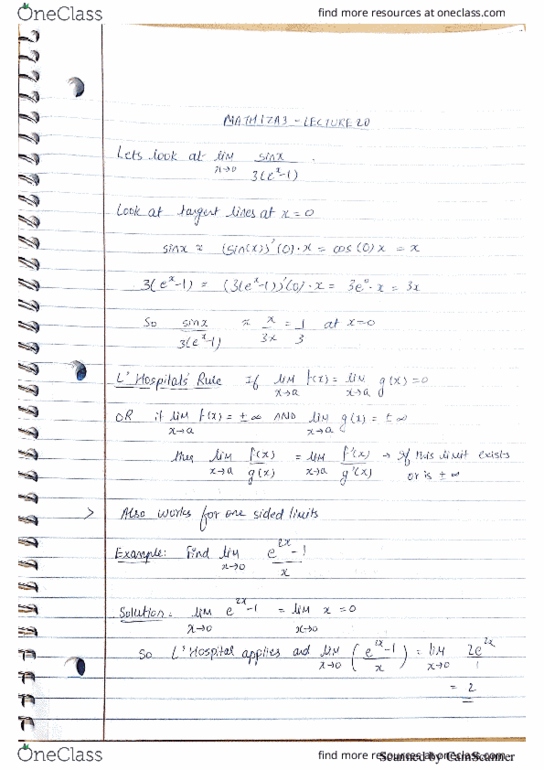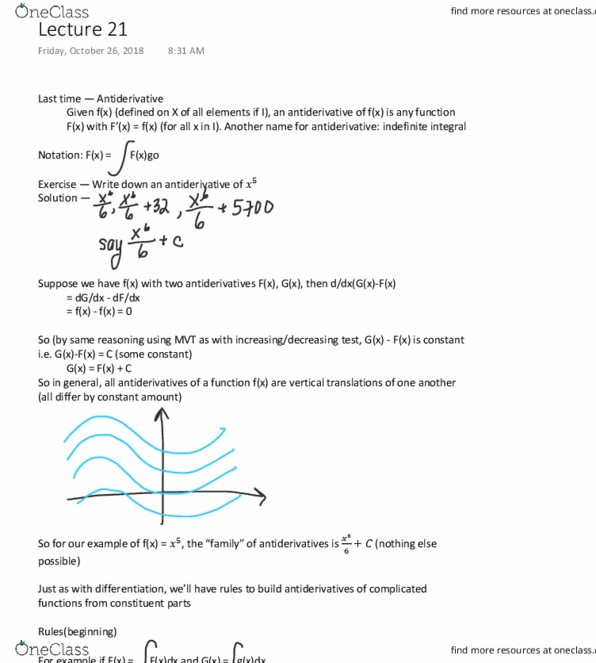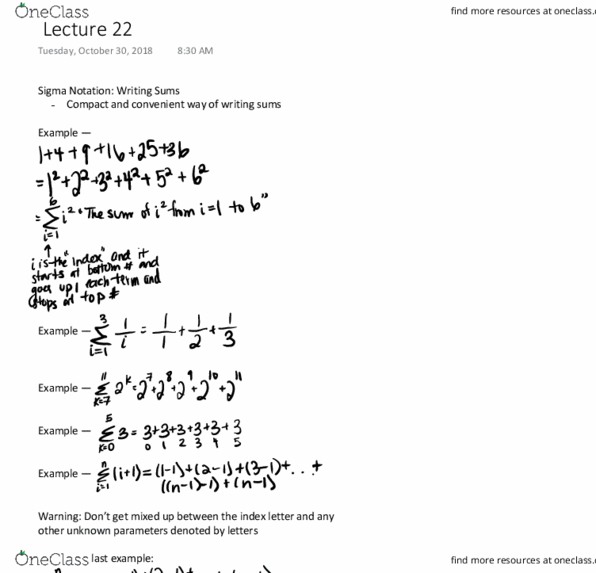MATH 1ZA3 Lecture 21: Lecture 21
MATH 1ZA3 verified notes
21/25View all
Document Summary
Given f(x) (defined on x of all elements if i), an antiderivative of f(x) is any function. F(x) with f"(x) = f(x) (for all x in i). Exercise write down an antiderivative of " Suppose we have f(x) with two antiderivatives f(x), g(x), then d/dx(g(x)-f(x) So (by same reasoning using mvt as with increasing/decreasing test, g(x) - f(x) is constant i. e. g(x)-f(x) = c (some constant) So in general, all antiderivatives of a function f(x) are vertical translations of one another (all differ by constant amount) So for our example of f(x) = ", the family of antiderivatives is #$ Just as with differentiation, we"ll have rules to build antiderivatives of complicated functions from constituent parts. For example if f(x) = f(x)dx and g(x) = g(x)dx. Then f(x) + g(x) = (f(x) +- g(x))dx f(x)dx +- g(x)dx. Also kf(x)dx = k f(x)dx (k is constant) (see tables on p. 352, p. 403 of textbook)




